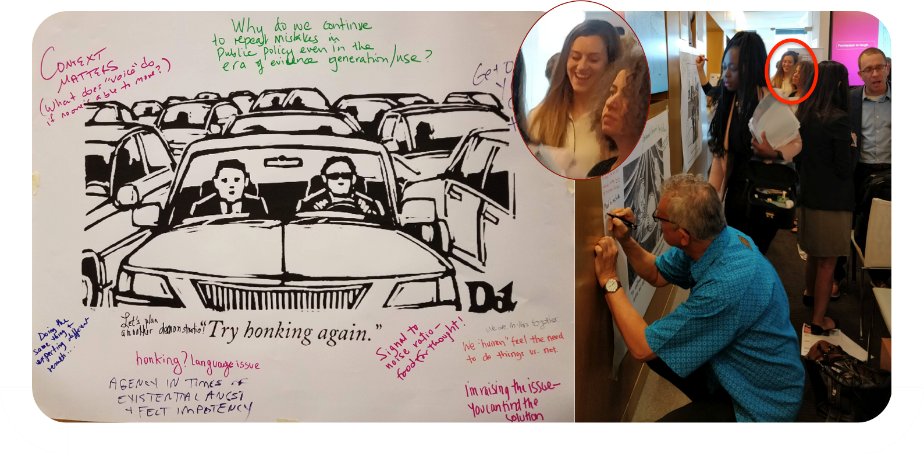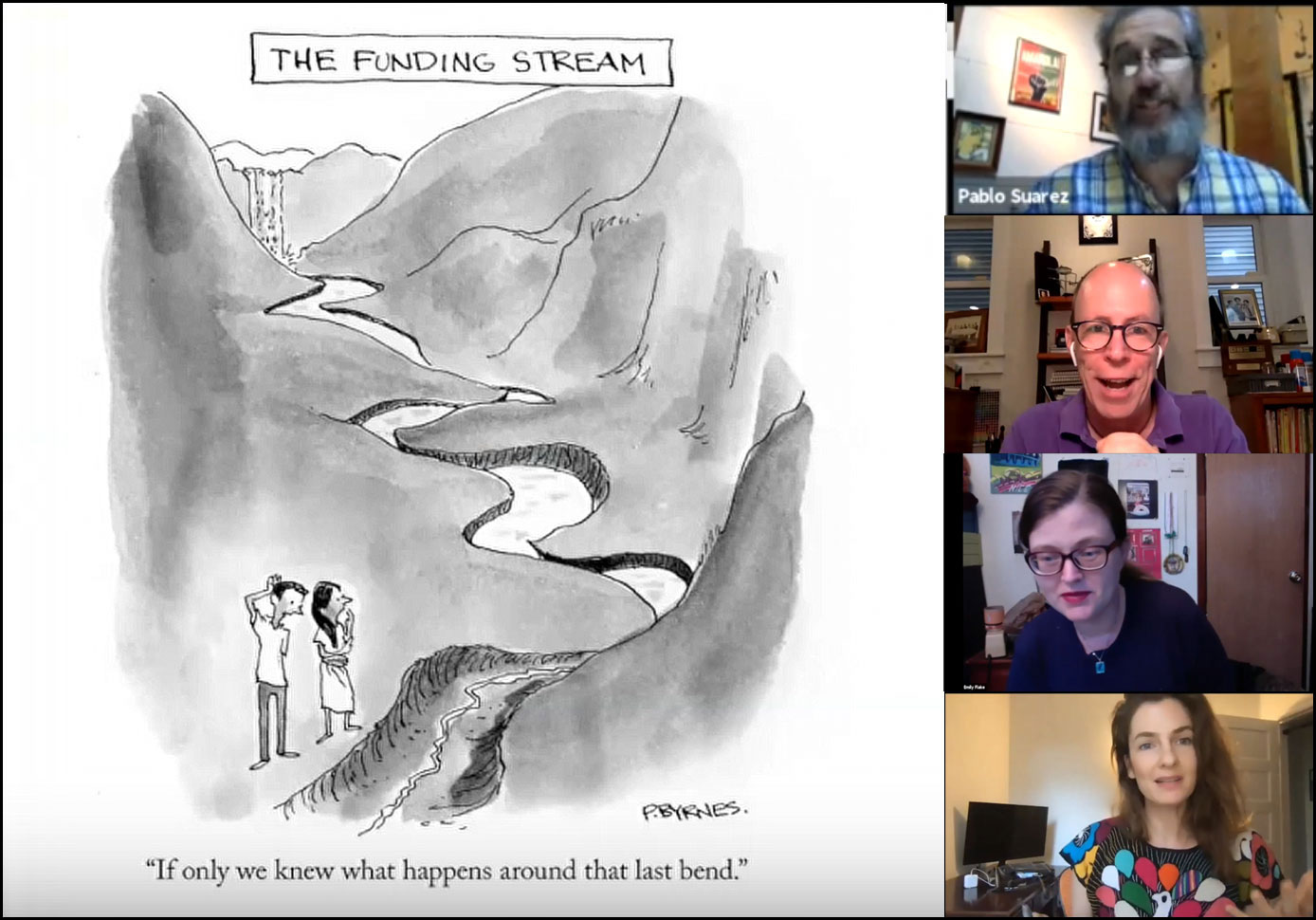![]() Lately, problems and risks feel unavoidable; yet, they must be faced, whether within your community or in your business. So how do you get people excited about discussing tough issues and encourage teams to lean into solving them versus becoming overwhelmed and disengaged? How do you build trust and inspire communication when everything feels fraught? We’ve found a powerful key to opening doors and minds: humor.
Lately, problems and risks feel unavoidable; yet, they must be faced, whether within your community or in your business. So how do you get people excited about discussing tough issues and encourage teams to lean into solving them versus becoming overwhelmed and disengaged? How do you build trust and inspire communication when everything feels fraught? We’ve found a powerful key to opening doors and minds: humor.

Pablo Suarez
When you think about solving problems and confronting risk, humor might not be the first tool you consider. However, humor is an incredibly powerful tool for communication. Pablo Suarez knows this better than most. As Associate Director for Research and Innovation at the Red Cross Red Crescent Climate Centre and Senior Fellow at the Adrienne Arsht-Rockefeller Foundation Resilience Center, Suarez faces the problem of bringing people across the world together to solve global problems every day, and it is not easy.
“Even before the pandemic, it was clear that we needed to reimagine how we engage,” says Suarez, “As a researcher turned humanitarian worker, my job involves communicating risks. I found that when I mostly ‘talked science’ to the people who could save lives, I was extremely good at putting them to sleep. Research shows that showing research doesn’t work. So I’ve been exploring different ways of engaging people with the complexity of future risks through serious fun.”
Suarez began collaborating with former New Yorker cartoon editor Bob Mankoff and his company Cartoon Collections (parent of CartoonStock.com) in early 2019 to create humor-driven events that could break down the communication barriers he was experiencing with a new tool they developed together: live Cartoonathons.
During a Cartoonathon, cartoonists listen in during an event or meeting and draw upon the insights and points of friction they uncover. They present their rough cartoon drafts, and everyone is invited to discuss, collaborate, and laugh with each other and the artists.
Participants then offer their suggestions for improving the cartoons and, by association, their goals. The fun, interactive process helps introduce new perspectives, innovative thinking, and breakthrough ideas.
 “I’ve found that humor helps to dissolve denial,” Suarez explains. “Cartoons invite us to recognize reality as ridiculous, inexcusable, requiring change. Once armed with that irrefutable awareness, it’s easier for teams to reflect and discuss candidly what’s really going on; and most importantly, what to do about it.”
“I’ve found that humor helps to dissolve denial,” Suarez explains. “Cartoons invite us to recognize reality as ridiculous, inexcusable, requiring change. Once armed with that irrefutable awareness, it’s easier for teams to reflect and discuss candidly what’s really going on; and most importantly, what to do about it.”
When hosting large-scale in-person and, since the pandemic, increasingly virtual events around the globe, Suarez found that Cartoonathon participants came away feeling enlightening and excited to tackle problems; the polar opposite of the boredom and anxiety that often result from presentations of hard data.
“Humor encourages bonding, enhances problem-solving, and enables difficult conversations. When people are having a good time discussing serious stuff, humor carries hard truths into their consciousness.”
 By bringing talented cartoonists into the mix, Cartoonathons add several sets of fresh eyes and ears to the conversation. The artists listen to the dialog and sketch ideas on the spot. The resulting finished cartoons break down complex ideas into small, understandable visuals. Simply seeing a problem illustrated succinctly helps the viewer focus on the main issues, leading to more positive conversations and active outcomes.
By bringing talented cartoonists into the mix, Cartoonathons add several sets of fresh eyes and ears to the conversation. The artists listen to the dialog and sketch ideas on the spot. The resulting finished cartoons break down complex ideas into small, understandable visuals. Simply seeing a problem illustrated succinctly helps the viewer focus on the main issues, leading to more positive conversations and active outcomes.
Suarez has found Cartoonathons so successful in his work, he has begun scheduling several per year. Here are a few articles featuring past Cartoonathons he’s hosted:
- Seriously funny: Using humor to spark deep conversations about evaluation: The Independent Evaluation Group (IEG) and the International Initiative on Impact Evaluation (3ie), World Bank
- Atlantic Council Code Red Climate Change: Video discussion of resulting cartoons at 1:04:00, Washington Post Article
- IFRC Solferino Academy, Red Cross Red Crescent Climate Centre
“Humor isn’t merely entertainment. It’s smart, strategic communication. And frankly, we need to get smarter, fast.”
Quotes from this article originally appeared in this post: Why Confront COVID-19 with Cartoons and Humour?

